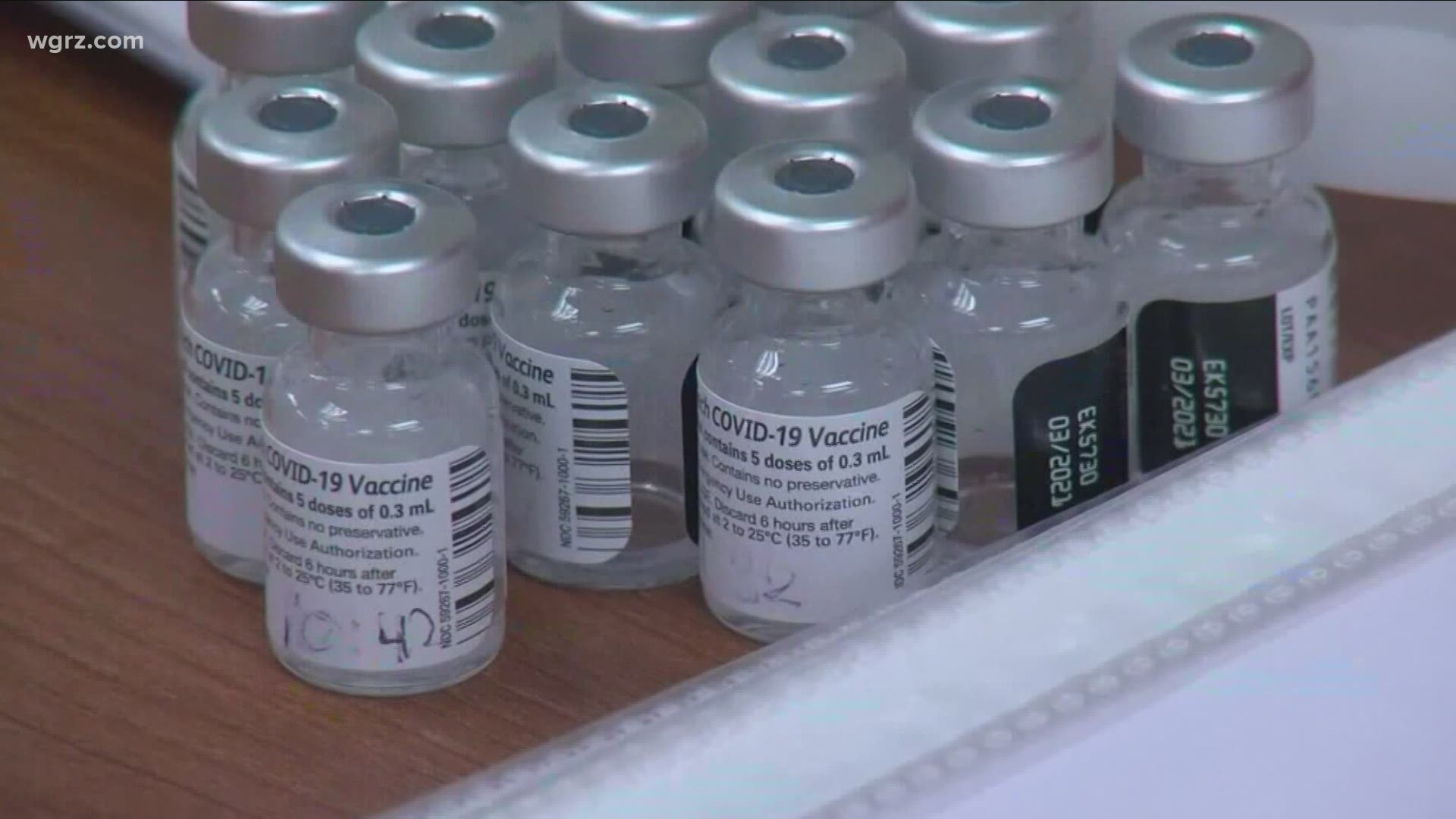BUFFALO, N.Y. — The wait for a pediatric vaccine may not be much longer.
On Tuesday, Moderna announced the start of a new trial that tests their COVID vaccine in young children ages 6 months to 11 years old. The goal of this new study, dubbed KidCOVE, is to test the efficacy of the vaccine in kids.
The study, which is also a collaboration with the National Institute of Health, will test the vaccine on nearly 7,000 kids.
In the winter, Moderna tested the vaccine on adolescents ages 12 to 17 years old. Results from that study are still pending.
Dr. John Sellick is an epidemiologist at Kaleida Health and a professor of medicine at the University at Buffalo, says this new study is a big step in the right direction - especially when it comes to boosting herd immunity.
"Getting kids immunized is going to be a very important part of this moving on to getting a good level of protection in the community," Sellick says.
While studies show children are not as susceptible to getting COVID-19, Sellick says they can be carriers, which is why developing a pediatric vaccine is important.
"They are able to get infected and then potentially infect other people who are susceptible," he says.
The study itself is still accepting participants across the United States and Canada. As for how it will work?
Sellick says, the main point of interest in this study is looking at immunological response in the pediatric population.
"What they will do is collect information on immune response, see how that compares to what they got in the adult studies and then that's what they will use to go to the FDA and say, 'here's what we have, our immune response to this in these younger age groups is the same as it is in the adult age groups so therefore we can make the connection that the protection will be the same,'" Sellick said.
However, trials are not without some hesitancy or controversy.
Though Sellick says vaccine hesitancy is lessening, it's still out there and it's likely that hesitation amongst adults could affect the percentage of kids that ultimately get vaccinated.
Jessica LaMarca is the mother of two teenage boys, ages 13 and 16, and says right now she's not comfortable getting her sons vaccinated.
LaMarca says her hesitancy has to do with lack of transparency and data.
"It's relatively new. I feel like short-term they're saying it's safe, long-term we don't really know the answer to that," she says.
More information about long-term effects could help boost her confidence, but unfortunately, LaMarca says right now it's too early to know.
As for these vaccine trials?
LaMarca says, "it's a personal decision" and every family has to make an informed decision that works best for them.
Sellick says, thus far, of the millions of people who have been vaccinated there have been no "show-stopping" kinds of side-effects from either the Pfizer or Moderna vaccine.
As of right now, Pfizer has not expanded their trials to include a younger pediatric population.

